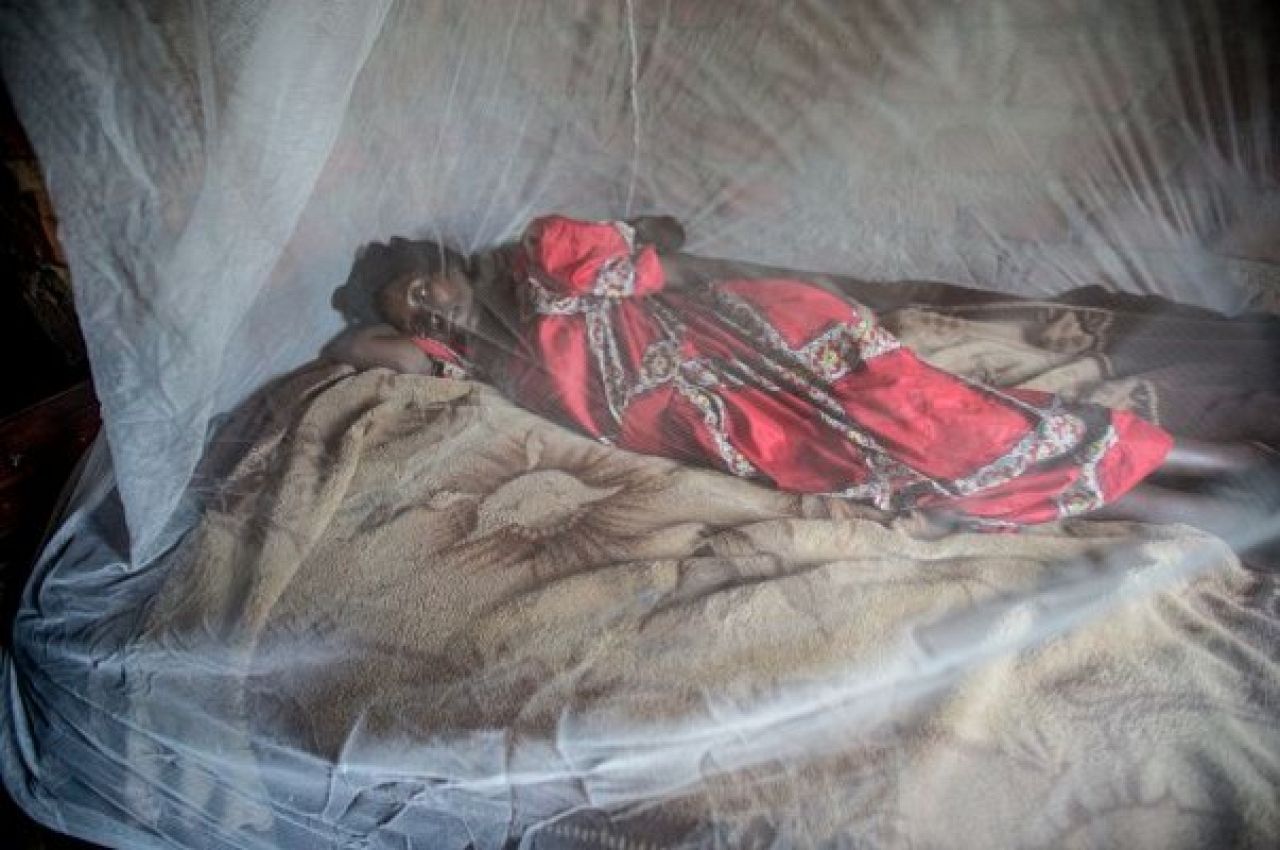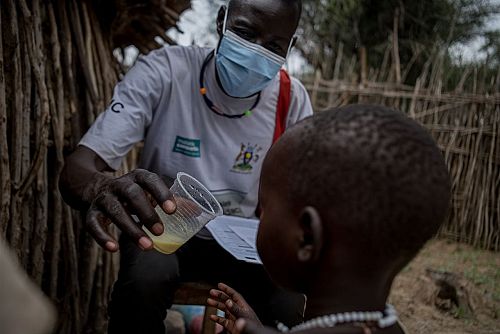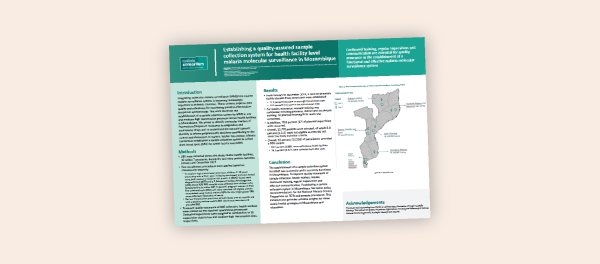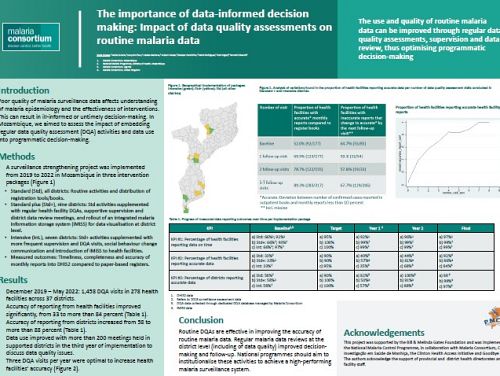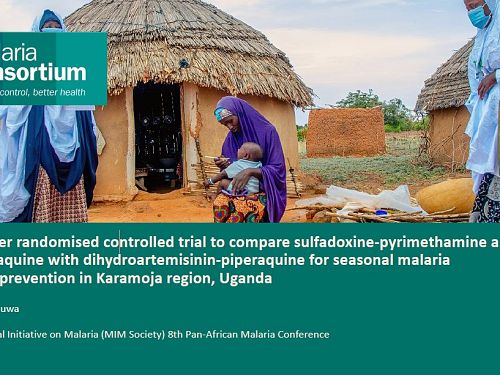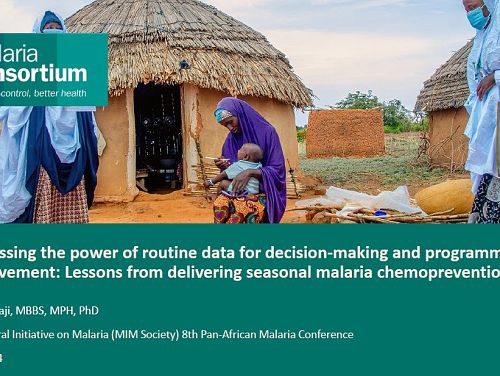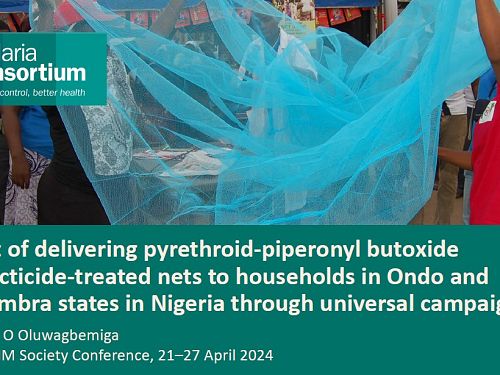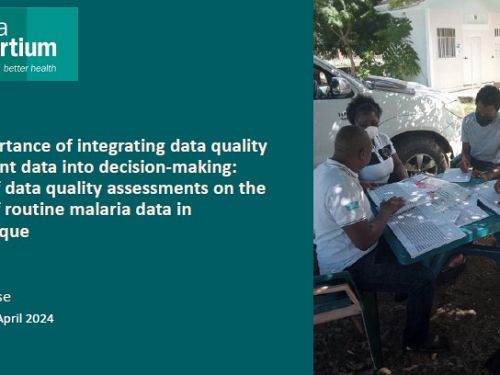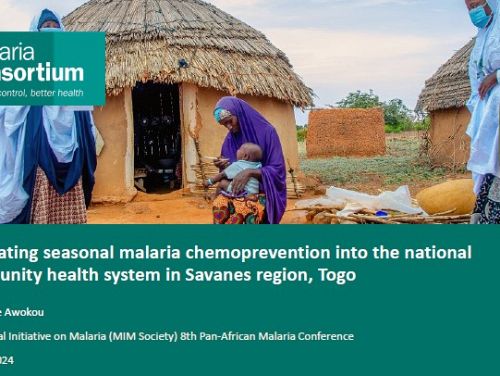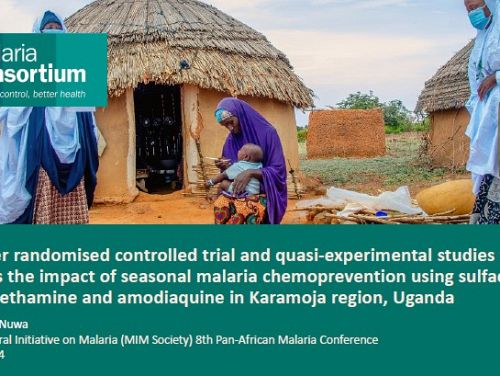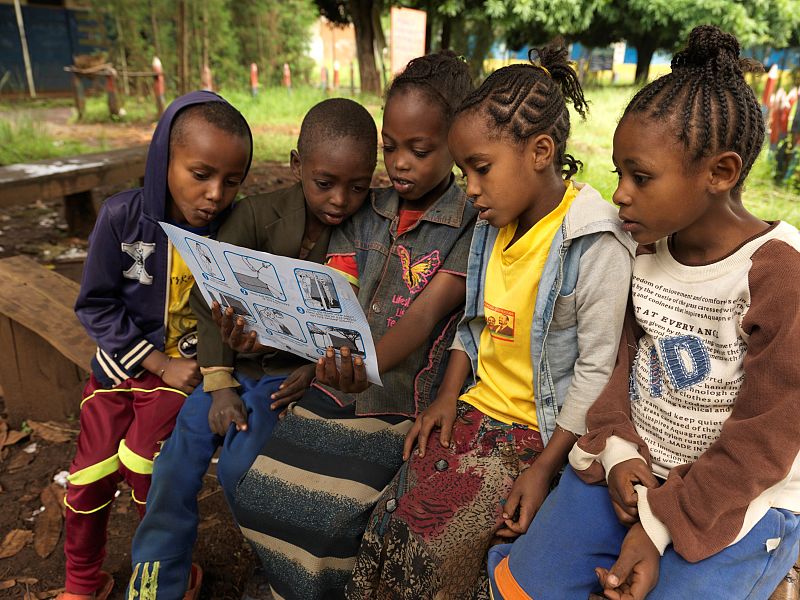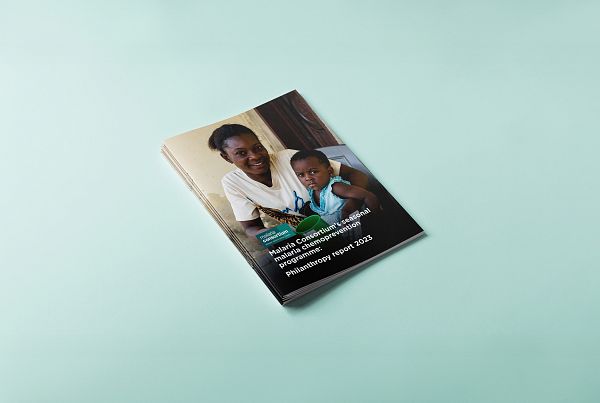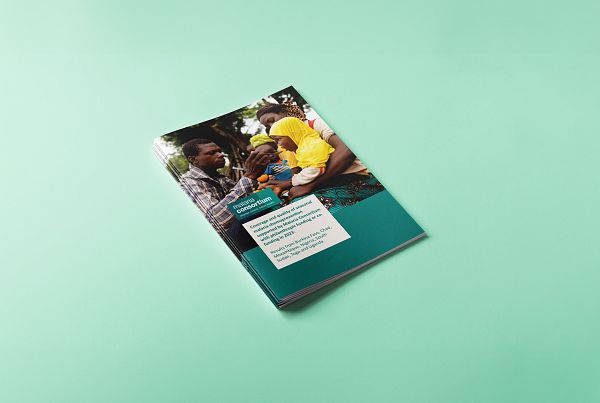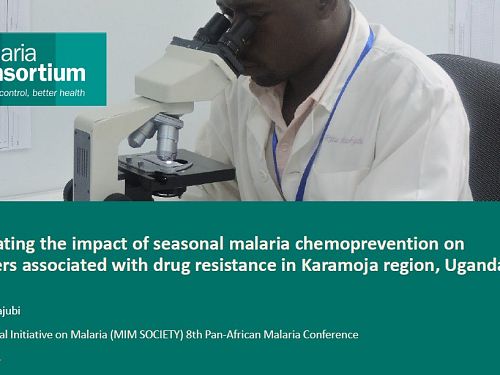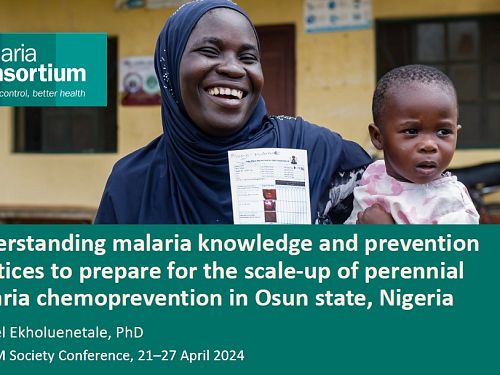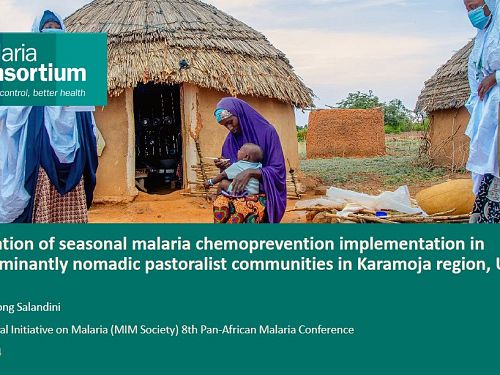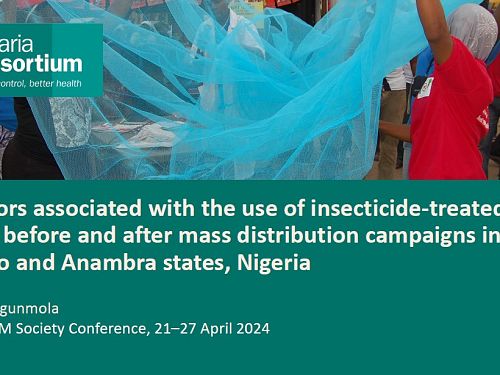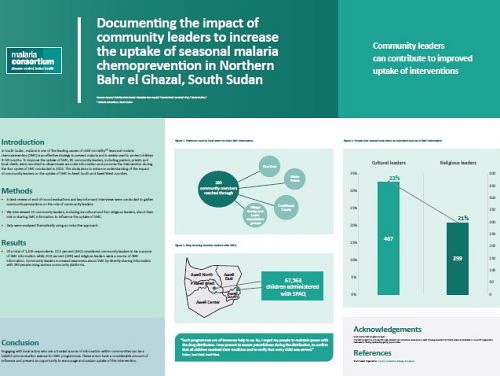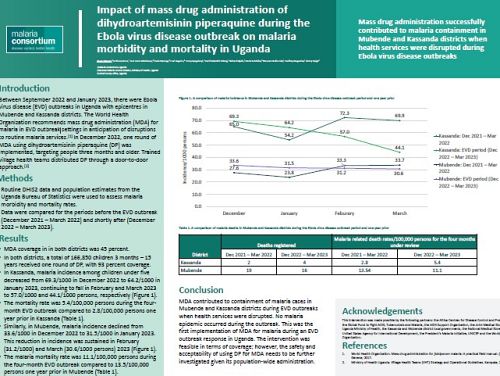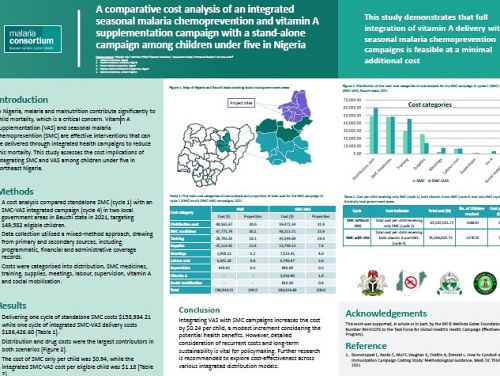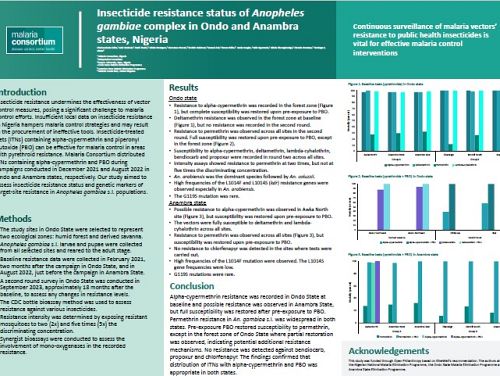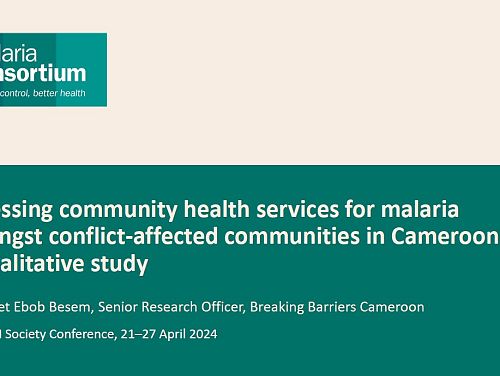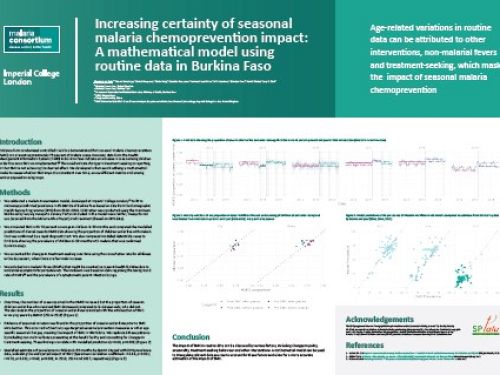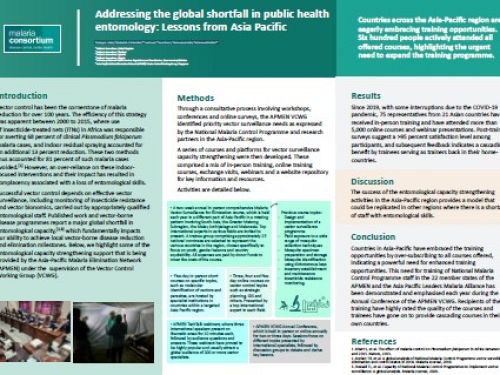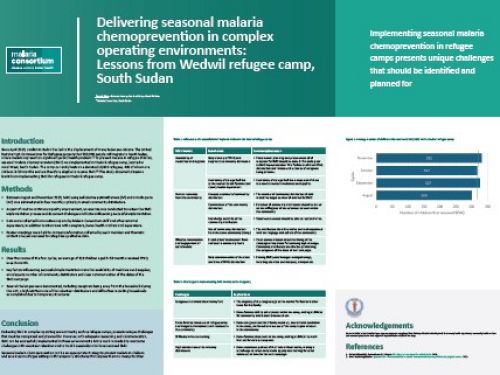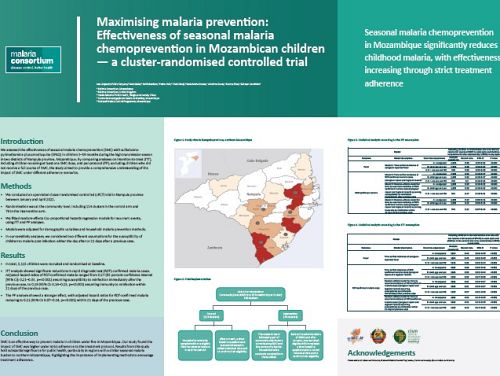What we do
We extend beyond current practice, to explore innovative ways – through research, implementation and policy development – to achieve effective and sustainable disease management and control. We are dedicated to ensuring our work is supported by strong evidence and remains grounded in the lessons we learn through implementation.
Our new impact report highlights how we're contributing towards Universal Health Coverage. We're constantly re-evaluating solutions to the global health challenges that arise including antimicrobial resistance, climate change and reaching populations displaced by conflict, whilst continuing to deliver life-saving interventions like seasonal malaria chemoprevention. Read more about our achievements in the report.
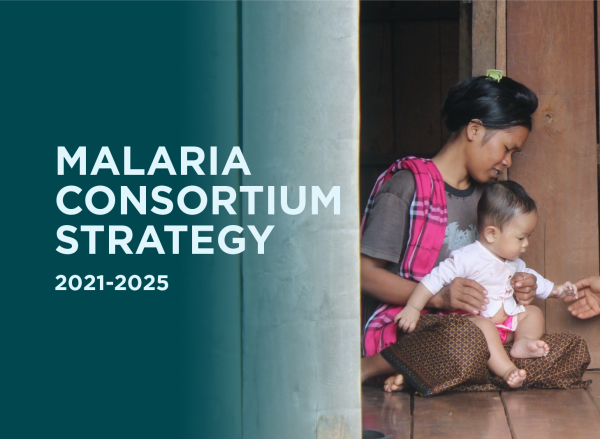
Our strategy
Malaria Consortium's Strategy 2021-2025 is driven by our vision of a world progressing towards Universal Health Coverage, with a marked and sustained reduction in malaria and other communicable diseases. We will invest our efforts in accelerating the reduction in the burden of these diseases, supporting health systems to be more responsive and resilient, strengthening data-informed decision-making, and using our expertise and learnings to influence policy and practice.
Learn more
Diseases
Our work is focused on the control, management and, where appropriate, the eventual elimination of range of diseases - malaria, pneumonia, diarrhoea, dengue and neglected tropical diseases. We balance this focus with other factors that affect child and maternal health, particularly malnutrition.
Learn more
Accelerating burden reduction to elimination
Preventable infectious diseases, including malaria, pneumonia and dengue, can affect a young child’s mental and physical development, keep older children out of school and adults out of work, contributing to the cycle of poverty and impacting on the prosperity of individuals, communities and whole countries. We’re committed to accelerating the reduction in the burden of targeted diseases, using our expertise and experience to deliver interventions including chemoprevention and vector control, improving case detection and treatment, utilising community engagement approaches and developing capacity for disease surveillance and data analysis.
Learn more
Data-informed decision making & digital approaches
Applying digital technology helps us to bring affordable, quality health services to those living in hard-to-reach areas. By combining capacity development at the community level with the use of innovative tools and platforms, we are able to capture high-quality, timely and accurate data and target interventions to where they are most needed. Digital tools facilitate communities’, health workers’ and governments’ real-time access to health information and data — improving knowledge, uptake of services, productivity and informed decision making.
Learn more
Health sector resilience
Supporting health sector resilience to achieve Universal Health Coverage (UHC) - equitable, affordable access to quality health services - is fundamental to the design and implementation of our programmes. We work with all levels of the health system to ensure that our programmes contribute to increased resilience and sustainability at local, district, regional and national levels. We also tailor interventions to improve equity by providing quality health services to marginalised populations (particularly women and girls and those living in hard-to-reach areas), that are affordable for users.
Learn more
Research & policy change
Our expertise in all aspects of disease control and elimination, as well as integrated community case management, community engagement approaches and health system strengthening, provides strong evidence for our research work and allows us to confidently advocate for evidence uptake into national and global policies. Recognised by UK Research and Innovation for conducting high quality implementation and operational research, we provide evidence for programme staff, ministries of health and partner organisations so that they can make informed decisions to improve programme performance and quality of implementation.
Learn more
Networks & partnerships
Our country teams are active in national government-led programmes and technical networks, helping to influence policies with our learning, findings, and recommendations. Our collaborative approach with partner organisations and ministries of health helps to translate operational research findings into public health practice, develop improved disease control strategies and ensure sharing of expertise and research findings with other partners and countries.
Learn more
